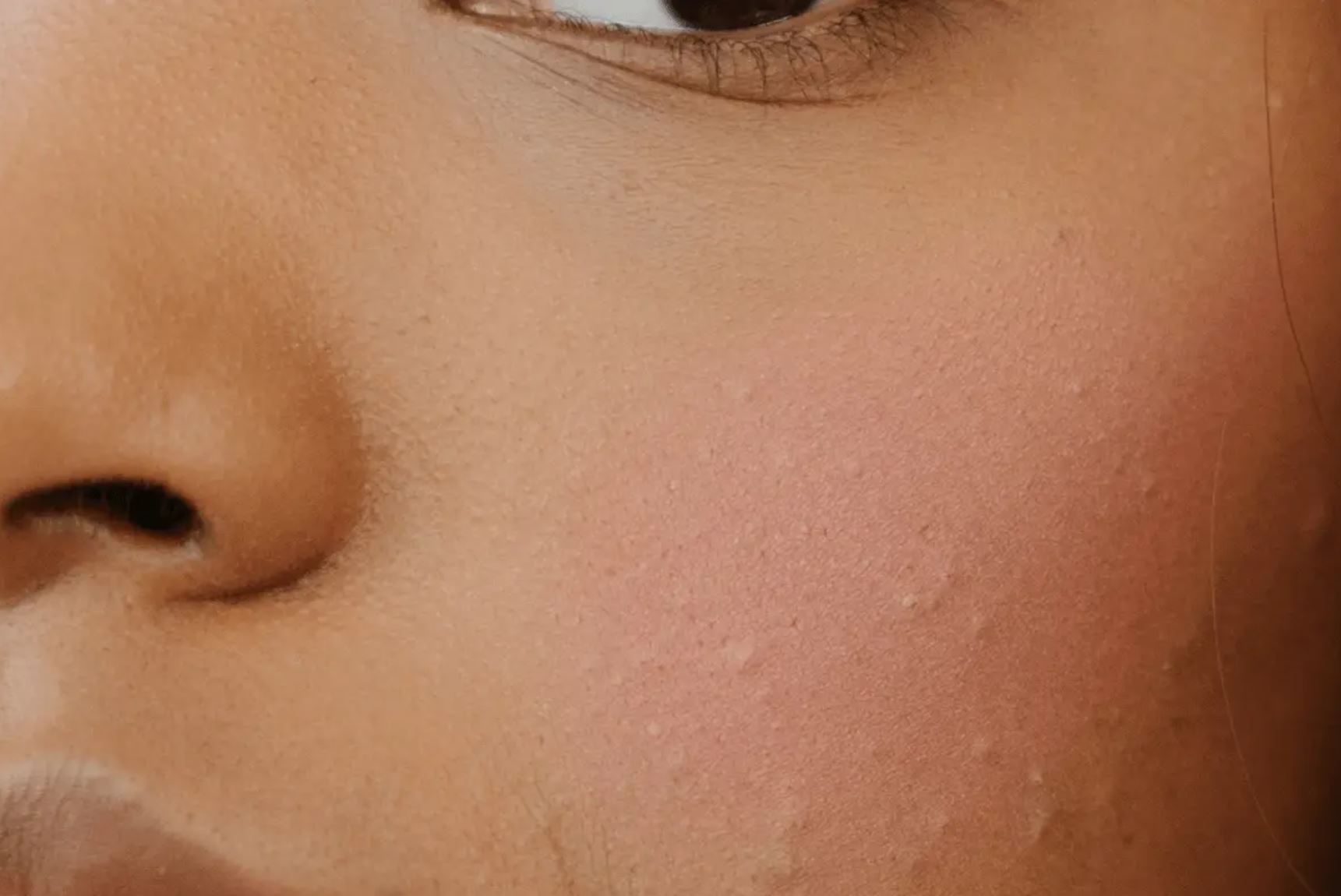
Did you know that acne affects about 80% of black and dark-skinned women? It can occur even after adolescence. Moreover, acne on black skin causes another problem: pigmentation spots .
Indeed, the slightest aggression to black skin leads to an overproduction of melanin responsible for the appearance of spots. This is called post-inflammatory hyperpigmentation. These black spots due to acne pimples are the main problem for black skin after acne treatment.
To achieve beautiful skin, it's essential to choose your beauty products wisely and have a good skincare routine. While acne can be frustrating, it's completely treatable.
Acne is a skin condition characterized by blackheads, whiteheads, pimples, and cysts. It occurs in areas with the highest production of sebaceous glands: the face and neck, but also the chest, shoulders, back, and upper arms.
Acne occurs when pores become clogged with dead skin cells, causing a buildup of sebum.

The main causes of acne are:
Overproduction of sebum: This phenomenon is usually observed during puberty. This excess sebum clogs pores, causing the inflammation often associated with acne.
Heredity: If one or both of your parents had acne, you are more likely to get it too.
Certain factors can also trigger an acne breakout. You can act on these triggers.
Beauty products: Hair products and some makeup can clog your pores. Opt for products that are “non-comedogenic” or “non-acnegenic.” These types of products are less likely to cause acne.
Sweating: Excessive sweating can make acne worse in some people.
Excessive washing: Washing or exfoliating the skin too often or using harsh cleaning products can irritate the skin.
Medications: Certain medications can cause acne breakouts.
Menstrual cycle: Some women experience acne breakouts a few days before their period, due to fluctuating hormone levels.
Diet: If you notice that certain foods increase your acne, try to avoid them.
Here are our tips for getting rid of your acne pimples.
You should treat your acne as soon as it appears. Studies show that treating acne early prevents it from getting worse. Letting acne get worse before starting treatment could cause dark spots. Use a skincare product that's suitable for black skin. We recommend Inoya Blemish Control Cream or Targeted Corrector .
After treating acne pimples, you need to tackle blackheads. We recommend Inoya anti-blemish serum .
For optimal treatment of spots and blemishes on the face or body, we recommend the Inoya Anti-Blemish and Spot Pack .

When applied to the face, neck, back, and chest, products containing comedogenic oils can clog pores and cause acne. Choose skincare products without comedogenic oils. They are less likely to clog pores.
Picking at your pimples can worsen inflammation and cause scarring and dark spots.
If acne only appears on your forehead and temples, it could be due to the oil you use on your hair! Be careful not to get hair products on your face.
Wash scarves, hats, and any other accessories that come into contact with your face or hair regularly and thoroughly. This will remove accumulated sweat, dirt, and oil.
While you may find them effective at covering up your imperfections, be aware that oil-based makeup can also create new imperfections. Instead, opt for mineral makeup or makeup labeled non-comedogenic.
Harsh products could make your acne breakouts worse.
Cleanse your face and neck thoroughly morning and night with a gentle cleanser suitable for sensitive skin. Use your fingertips to gently apply the cleanser. Gently pat dry with a clean towel.
Protect yourself when exposed to the sun to prevent the appearance of dark spots or avoid making them worse. Ideally, choose a sunscreen with an SPF 50 .
If cosmetic products fail to address your acne problem, consider consulting a dermatologist who specializes in black skin . They can create a treatment plan tailored to your specific needs. They can also advise you on salon treatments for dark skin.
To achieve beautiful, black, pimple-free skin, it's important to maintain a good skincare routine that includes regular cleansing, proper moisturizing, and the use of gentle, non-comedogenic products. It's important to ensure a balanced diet and good stress management.
Acne pimples can be caused by several factors, including excess sebum production, pores clogged with dead skin cells, bacteria, hormonal fluctuations, stress, and certain cosmetic products.
To remove acne pimples, it is recommended to cleanse the skin regularly with a gentle cleanser, apply topical treatments containing ingredients such as benzoyl peroxide or salicylic acid, avoid picking at pimples, and consult a dermatologist for additional treatment options if necessary.
Certain essential oils, such as tea tree oil and lavender oil, are known for their anti-inflammatory and antibacterial properties, making them popular choices for treating acne breakouts. However, as with all essential oils, there are some precautions to take, including diluting them properly before use and performing a patch test first to avoid allergic reactions.
Acne pimples can be painful due to inflammation associated with bacterial infection beneath the skin's surface. When pores become clogged and inflamed, it can lead to increased pressure and sensitivity in the affected area, which can make acne pimples painful to the touch.
Acne affects women (and even men) in both adolescence and adulthood. There are treatments available to get rid of acne on black skin.
To prevent your acne from getting worse or leaving dark spots on your skin, you need to treat it as soon as it appears.
You can also avoid certain factors that can trigger acne or make it worse. Read the labels on your beauty products carefully. Choose products marked “oil-free,” “non-comedogenic,” and above all, avoid bleaching products.
There are healthy, effective, non-lightening products designed specifically for black skin. These products are kind to your skin and meet its specific needs.
Do you need help taking care of your skin and choosing the right products?
Book your free telephone consultation.
You will receive personalized advice and a tailor-made routine.